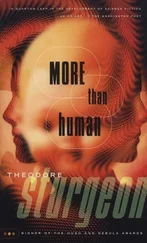Amy isn’t scared of riding on the train, even if she should be, and she doesn’t mind the cold, the way her nose and cheeks burn from it. She’s been schooled in patience and won’t jump before she has to. She likes listening to the clink and groan of the cars, and smelling the layers of grease that pervade the train.
She lets the first few chances to jump pass her by, hesitating at the edge of the flatcar, and then the next few until several towns are behind her and she’s still standing on the precipice, rogue strands of hair working out from under her stocking cap to whip the back of her neck. She stands on the train bed, serves witness to the abandoned industrial yards of small towns, the timber stands and feedlots unmanned during the night.
Eventually she curls against the cargo she’s riding with and watches the dark countryside as she rattles into it. Amy is unwilling to jump. She wants to see where this train will take her.
On the day her father arrived with the rental van, the day she moved to St. Paul, Chadron just kind of hung out and watched as Amy packed up her half of the house. He laid in bed as she filled cardboard boxes from the grocery store, then he sat on the couch eating cereal and watching baseball, then he stood with his back to the sink, slurping cans of Dr. Pepper until the furniture was loaded out and her clothes boxed up.
“Don’t you have anything to tell me,” she asked when it was time to leave. Her father had already driven the moving van across town.
“No,” Chadron said. “I knew this would happen. The kind of guy I am, the kind of girl you are. We both knew this would happen.”
From the moment they first met Amy recognized him as a man she could take care of. She fell for him — sweet, malleable Chadron, her dumb-muscle beau. He adored her with such genuine affection and loyalty, a kind of simple gentility that was lost on most of the men and women Amy’s been with both before and since. It was so bizarre to her, the way she acted with him — this just months after dropping out of school in Lincoln — but she was a changed woman, no longer the type who promised things to herself. She took charge and told him the way things were going to be, that she was attracted to him, and what she was going to do with him. He listened, guileless Chadron.
“You know it’s me who’s going to leave you ,” she teased. Sometimes she whispered this to him when he held her too closely, if she felt like he really did love her. Amy knew she was running from something, being with him, and Chadron knew it too.
A friend of her father’s found her work in St. Paul, as an assistant in the admissions department of Macalester College. She planned to finish the degree she’d begun at NU. Amy liked the job, but something was still missing. Some vital part of her life was deficient. Her initial months in the Twin Cities were wild, those first loose nights when Amy was let free on the lesser dives of University Avenue, often finding herself in the basement bedroom of some college boy or another, once in the backseat of a car with a woman she met at a dance club, and then there was the man with a red beard from the cigar bar. Even though there was a booster seat in the back of his car, and a wedding band in the ashtray, she still went down on him. Amy never learned the names of these acquaintances. She’d create an alias for the guy then repeat it unprompted throughout the night, refusing to hear his real name. It was a guardedness that nearly masked her melancholy — a mournfulness she transformed into a self-sufficiency of sorts.
These encounters seemed incidental when they happened, forgettable indiscretions. Amy had to reconsider them. Things change, sure, she knew this. Life progresses. It’s just that the change you end up with isn’t always the one you need. You don’t have to accept it. She got to the point where she was an embarrassment to be around for the people who were trying to be her friends. Amy was trashy. That’s what happens when you sleep with every guy you know and then hate them afterwards. It’s okay to be sad, Amy learned, unless people know you are. Then it’s bad for everyone. It’s untenable.
These were the reasons why Amy backtracked the weeks before Christmas, to reestablish a hold on herself. She found an apartment close to campus in St. Paul, curtailed her drinking, arranged for part-time admission to the college. With her father’s help Amy hired a lawyer to draft papers dissolving her lingering marriage to Chadron and she returned to Aurora for the holiday with the intention of having those papers filed at the Hamilton County Courthouse.
It could have been simpler, but Amy wanted to be with him one more time. She still found Chadron attractive, his rangy muscles, the way his face was always red, partly from sun-damage to his cheeks, partly because of capillaries burst from alcohol, partly from the country bashfulness he couldn’t suppress.
Then the train rumbled out from the northern edge of town, blowing by as they pushed against its current. The train’s noise was stultifying, its sheer power electrified the very air she breathed. Its surging muscle infused itself in her, compelled her body to move on a parallel circuit. It was almost too easy, the way she pulled herself onto the railcar bed. She wasn’t thinking about divorce papers or doing the right thing or how her direction in life had been so long ago untracked. Amy didn’t even think about where she might be headed, to where these lines led. It was instinct to attach herself to the rumble, to loose her hair in an astounding wind. Even if the result was painful, she wanted to discover what awaited her at the end of the line.
It’s close to morning by the time Amy hops off the train. She has a headache and needs coffee, so she positions herself at the edge of the railcar as it slows into another town, coasting into what looks like half timber yard, half salvage lot. There are long open stacks of lumber. On the other side of the tracks are great mounds of scrap, washers and dryers, the tore-out insides of buildings and wrecked cars ready to be compacted and bound together. Amy hops down, stumbles over rail rock as she lands, her legs shaky from a night of riding ill-spliced rails, then she follows the tracks until she’s on the other side of a chain-link fence that edges the rail yard off from the town. The sunlight is orange and yellow in rays that sneak over the horizon, which seems odd to her. The sky usually looks this way only in the evening, or during a storm, when dust rises into a tumultuous atmosphere to color the sky.
Amy realizes that the town is called Valentine by the signs on its businesses. She finds a fisherman’s cafe, a small brick building with old men drinking coffee inside. They wear plaid shirts with red suspenders and ball caps with the names of feed companies over the bill. These men resemble her father and his friends from church. Amy orders coffee and sits at a table near the window. The men smell her, she notices, their noses bend in her direction. The odors of the train followed her in, the heavy grease smell, the biting tang of too-fresh winter air that trails those who spent the night outdoors. It doesn’t bother Amy if the men stare. She’s used to being stared at.
When her coffee is finished Amy decides to call her father. She doesn’t really have any other options. The sooner she can get back to Aurora, the sooner she can take care of things and get her car and get back to the Twin Cities. There isn’t much waiting for her in Minnesota, but it’s what she has now.
A skinny man in a tee shirt is waiting to snap a picture of her when she opens the door. There’s a flash from his digital camera, and then she sees the man behind it, standing in the street.
“Don’t run,” he says, hiding the camera at his hip.
Читать дальше












